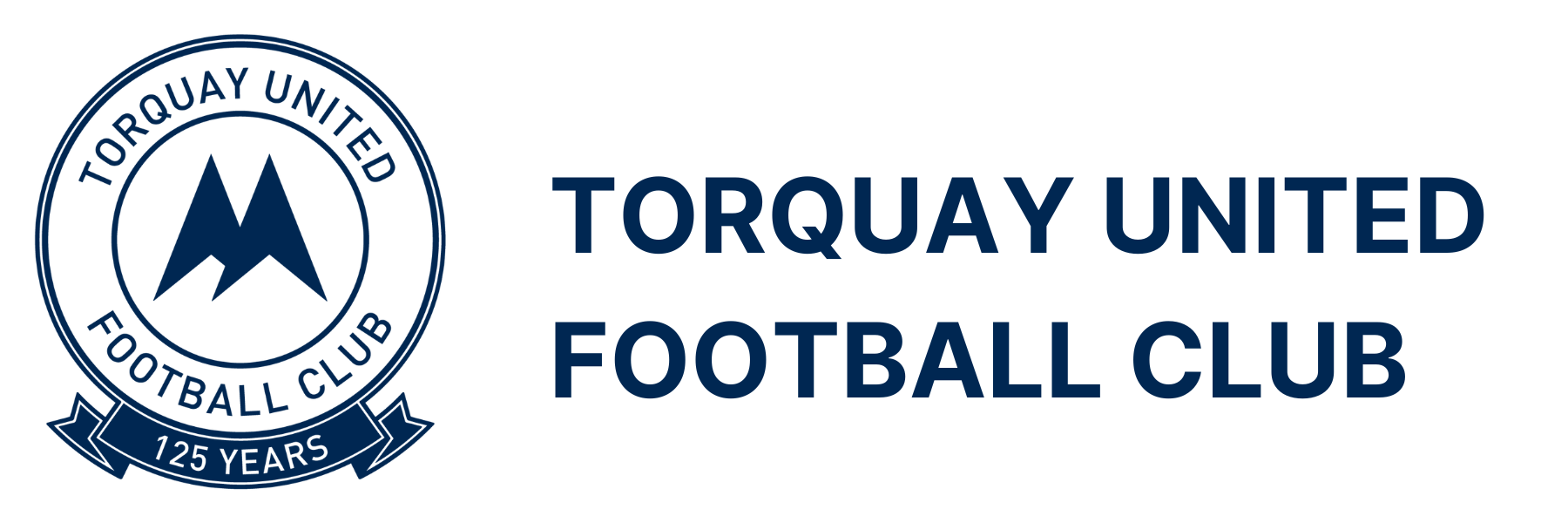With 2019/20 marking 120 years since Torquay United AFC’s opening campaign, we continue charting the history of the club, following its formation at the Torre Abbey Hotel on Monday 1st May, 1899.
After securing finishes in the lower-reaches of Division 3 (South) during the previous two campaigns, manager Frank Womack spent the pre-season interval putting the finishing touches to a squad which most onlookers regarded as the strongest in United’s history.
Never the quickest off the blocks, the 1930/31 began in very much the same way the previous season had ended, with Torquay impressive at Plainmoor, but quite the opposite away from home.
The opening eight games certainly followed that pattern, with an opening day defeat at Newport (1-2) followed by comfortable home wins over Crystal Palace (3-1) and Gillingham (3-0), before the team’s apparent travel sickness struck again, with a 3-6 defeat at Southend. The Magpies did fare better in the Devon Derby at Exeter five days later though, as two goals from Jimmy Trotter was enough to secure a 2-2 draw.
Three successive home games added another five points to United’s tally, with victories over Southend and Brighton (both 3-1) backed up by a 3-3 draw with Bristol Rovers, before Womack’s side recorded their first away win in almost ten months in emphatic style, courtesy of a 4-0 thumping of Walsall. A hat-trick for Trotter in that game took the former Sheffield Wednesday man’s tally to ten goals in his nine games for the club, since moving to Devon in the summer.
Having waited all that time to break their away duck, Torquay then repeated the feat in their very next game, as another hat-trick – this time from Harry Waller – earned them a 3-0 triumph at Northampton.
With their away woes now seemingly firmly behind them, it was therefore disappointing that United’s home form let them down in the next game, as they slumped to a 3-0 defeat against promotion-chasing Brentford. That display was soon forgotten though, as they trounced QPR 6-2 at Plainmoor seven days later.
Although their supporters would have been delighted with their team’s obvious improvement following three years of Football League struggle, there would have been some frustration that their inconsistent nature was preventing them from mounting a challenge to the league’s top sides. The Magpies’ unpredictable form was never more apparent than in their next two matches, as a dismal 0-3 defeat at Norwich was countered by a terrific 5-1 home hammering of Thames at the beginning of November.
However, the next four weeks were particularly testing, as the side succumbed to four successive defeats, as they went down to Clapton Orient (away, 1-4), Notts County (home, 0-4), Watford (away, 0-6) and Swindon (away, 0-4) by sizeable margins. Some relief came the day after the Watford humbling though, as a trip to Southend in the FA Cup brought success in the shape of a 1-0 win.
An identical scoreline at Accrington in Round 2 in mid-December saw United’s cup progression enter the New Year for the first time, with a visit to Division 2 side Bury awaiting them. Before that though, Womack’s side had some work ahead of them to restore confidence following a poor run of results, and despite a promising 3-1 home victory over Fulham, the festive period was not one to remember for The Magpies, with another heavy away defeat, at Coventry (1-6), preceding a Christmas Day defeat at Luton Town (1-3).
Things did pick up in the run up to the Bury clash however, with the return fixture against Luton resulting in a 1-1 draw at Plainmoor, before back-to-back wins over Newport (home, 3-0) and Gillingham (away, 3-2) saw the side head to Gigg Lane in confident mood.
That confidence appeared well placed, as Torquay matched their higher-division opponents in an absorbing encounter. Despite being underdogs against a side that had only lost their top flight status two years earlier, United managed to secure a replay via a 1-1 scoreline, with Trotter again on target. The stage was set for over 6,000 fans to head towards Plainmoor four days later, as the club began to dream of 4th round possibilities. Sadly, although Trotter was again on target, the visiting Shakers did just about enough to scrape through (1-2).
The home draws that followed that match couldn’t have been more different, with a goalless home draw against Devon rivals Exeter not living long in the memory banks, particularly after the 4-4 draw against Bournemouth that took place at the same venue four days later. Although successive defeats away to Brighton (0-3) and at home to Walsall (0-1) meant the team ended the opening month of 1931 without a win, Womack’s side were about to embark on fine run of just one defeat in their next nine matches.
February began in excellent fashion, as Northampton were well beaten at home (3-0), before there was a double dose of capital gains, as a 0-0 draw with Brentford was followed up by a 2-1 win over QPR. A return to Plainmoor heralded a 2-0 win over Norwich, before another trip to London saw the side pick up another valuable point at Thames (1-1) in the first match of March. The next game saw Torquay delighting the Plainmoor faithful with a marvellous showing in a 5-2 thrashing of Clapton Orient, before Notts County eventually downed United’s colours at Meadow Lane (0-2).
The team responded well to that setback with a 3-1 win over Watford on home soil, before the penultimate month of the season saw The Magpies steal a point at Bournemouth, thanks to a 2-2 draw. Having put together an such an excellent sequence of results, it was disappointing that the side’s away troubles began to resurface as the season headed towards its climax, beginning with defeat at Bristol Rovers (1-3). Having largely relied on their excellent home form throughout the course of the season, Womack’s side duly dispatched Swindon 5-0 at Plainmoor, before the season ended with something of a whimper, as the final three matches saw United failed to register a goal, with the fixtures against Fulham (away, 0-3), Coventry (home, 0-0) and Crystal Palace (away, 0-5) yielding just one point between them.
That late rough patch couldn’t hide a huge improvement in the team’s progress though, as Torquay secured 11th placing – their first top-half finish since being elected into Division 3 (South).



